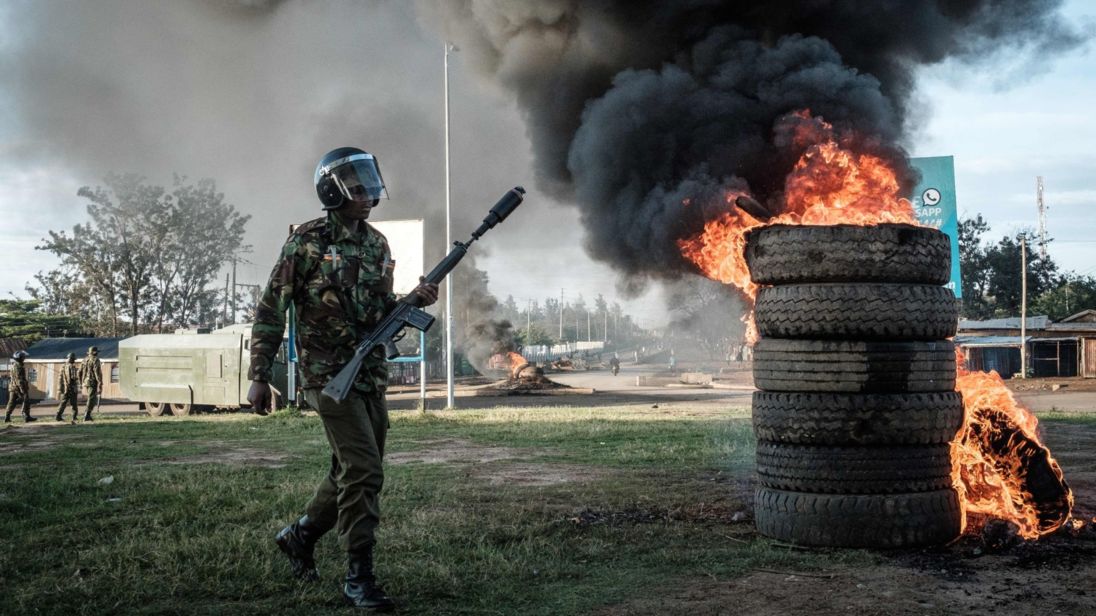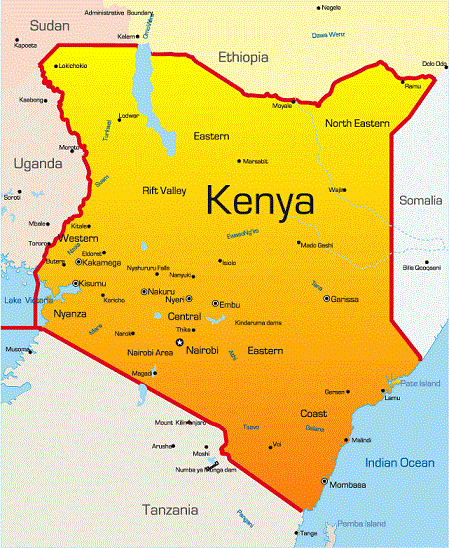Violence in Kenya
October 27, 2017 | Expert Insights

Violence erupted during the Presidential elections held in Kenya on October 26th, 2017.
This is the second time in three months the nation is holding the election. Reports have emerged of casualties as a result of the violence.
Background
Kenya is a country in East Africa bordering the Indian Ocean in south east. Its neighbors are Ethiopia, Somalia, South Sudan, Tanzania, and Uganda. Scientists have been able to find evidence of mankind’s earliest ancestors in the region.
The country has often been marred by violence. The Islamist militant Al-Shabab movement, has launched a number of attacked in Kenya. The militant group is particular active in Somalia but carried out the 2013 Westgate shopping mall in Nairobi and the 2015 attack on Garissa University College. Home to 48 million people, the region also grapples with challenges like high unemployment, crime and poverty. It also suffers from frequent droughts that puts the lives of millions of people at risk.
In addition to these issues, the country has often seen large outbursts of violence during the election period. There general elections that were held in Kenya in 1992 were the first multi-party elections since the nation got its independence. The results were marred by allegations of ballot-box stuffing, and targeted ethnic violence in the Rift Valley Province.
In fact, it was the general elections that took place in 2007 that resulted in the year-long emergency. International observers have stated that this was a political, economic, and humanitarian crisis. It happened after former President Mwai Kibaki was declared the winner of the Presidential elections. The vote had taken place on December 2th, 2007. The announcement was met with violence. Supporters of Kibaki's opponent, Raila Odinga of the Orange Democratic Movement, said that there had been electoral fraud. In addition to staging several non-violent protests, opposition supporters went on a violent rampage killing Kikuyus. Police shot hundreds of violent demonstrators, including a few in front of TV news cameras, causing more violence.
The crisis only ended after Kibaki and Odinga signed a power-sharing agreement called the National Accord and Reconciliation Act 2008.

Analysis
The current President of Kenya is Uhuru Kenyatta. The general elections in Kenya had been held on August 8th, 2017 and Kenyatta was once again declared the winner. The August election also attracted violence. Human rights groups have said that at least 24 people were killed as a result. Kenyatta was declared the winner, but the opposition said that the elections were rigged by the government.
However, in September 2017, the Supreme Court of Kenya declared the results of the elections “null and void.” It is likely that this is the first time in Africa where the court has ruled in favor of the opposition regarding election fraud. For a more detailed overview of the development, click here.
The re-run of Kenyan elections took place on October 26th, 2017. Odinga withdrew because he said that the elections won’t be fair this time around as well. According to initial reports, the turn out for the polls had gone down considerably. In addition, voting was postponed in at least four counties due to "security challenges". Some reports suggested electronic kits to identify voters and transmit results had not arrived in many of the polling stations.
Despite the problems, the polls have officially closed on the second round. Once again, there were clashes between the general public and the nation’s security forces. Odinga’s supporters got into a number of violent scuffles with the authorities. According to reports, at least two people were killed in Kisumu and several others wounded as police engaged in running street battles with protesters. One person was also killed in Homa Bay.
Mr Kenyatta, cast his vote and accused “tribalists” of trying to disrupt the poll. “We are requesting them humbly that they should turn out in large numbers,” he said. “We’re tired as a country of electioneering and I think it’s time to move forward.”
"We have faced and continue to face challenges which are largely security related in certain electoral areas," Wafula Chebukati, chairman of the Independent Electoral and Boundaries Commission, said. "The commission has postponed elections in those areas to Saturday the 28th of October this week. So there will be repeat elections in those areas in accordance with the law," Chebukati added.
Regarding the violence, the police have said that their response has been proportional and calculated. Joseph Boinnet, the country's police chief said, “In every instance which we respond to, our response has always been proportionate and measured. Our responsibility is to ensure that those who want to go and vote are afforded sufficient security to go and vote. Those who do not want to vote are also allowed the space to enjoy that right not to vote.”
Assessment
Our assessment is that the low turnout of about thirty three percent of the registered voters will undermine the credibility of the mandate. We also feel that the problem of tribalism between the more influential Kikuyu and the less marginalised Luo will continue. Kenyatta is a Kikuyu and Raila Odinga is a Luo. We also expect multiple legal challenges to the new election. The supreme court’s judgement annulling the August poll was seen as a victory for democracy in Kenya.








Comments